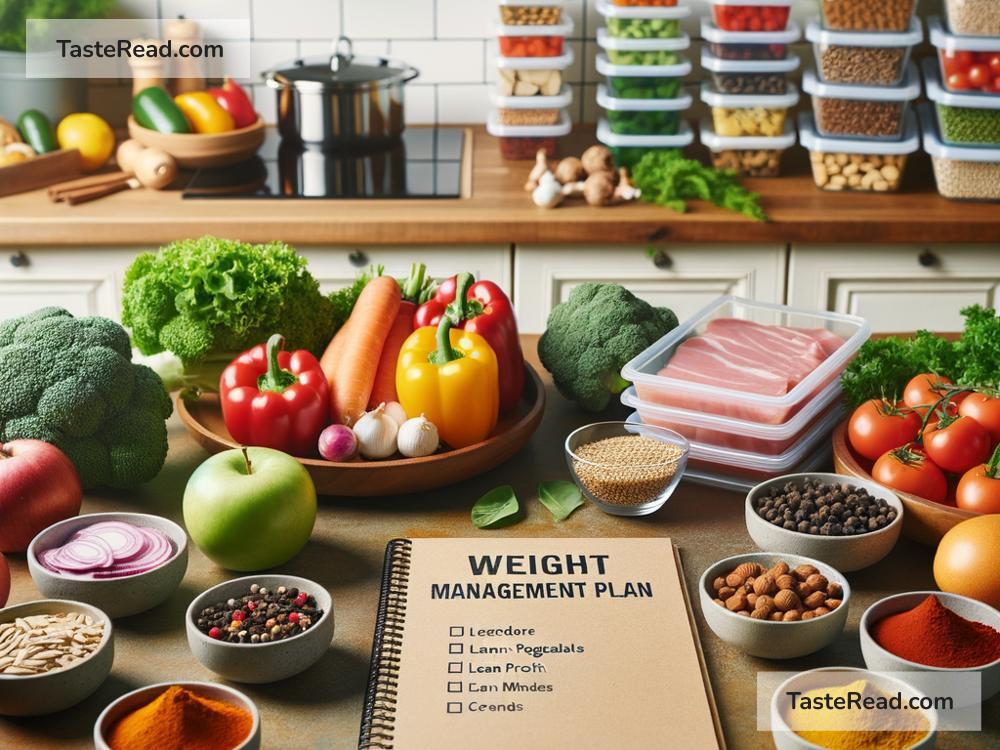Nutritional Strategies for Weight Management: Simple Tips for a Healthier You
Do you ever feel like managing your weight is a mystery? With so much conflicting advice online, it’s easy to become overwhelmed. The truth is, weight management doesn’t have to be complicated. Simply choosing smarter foods, eating mindfully, and adopting small habits can make a big difference over time. Let’s dive into some easy-to-follow nutritional strategies that you can use to stay on track with your weight goals.
1. Understand the Basics: Calories In vs. Calories Out
At its core, weight management is about balancing how much energy (calories) you eat versus how much energy your body uses. When you eat more calories than your body needs, the extra energy is stored as fat, leading to weight gain. On the other hand, if you eat fewer calories than your body uses, you’ll lose weight.
The key is not to eat too little or too much but to find a calorie balance that aligns with your health goals. Online calorie calculators can help you estimate how many calories your body needs each day based on your age, weight, activity level, and goals.
2. Focus on Nutrient-Dense Foods
Eating better isn’t just about cutting calories—it’s also about choosing foods that fuel your body. Nutrient-dense foods are rich in vitamins, minerals, and other essential nutrients but relatively low in calories. These include:
- Vegetables and Fruits: These are packed with fiber, water, and antioxidants. They fill you up without adding too many calories. Aim to make them a big part of your meals.
- Whole Grains: Choose options like brown rice, quinoa, oats, and whole-grain bread. They provide energy and keep you feeling full longer.
- Lean Proteins: Opt for chicken, turkey, fish, eggs, tofu, beans, and legumes. Protein helps build muscle and keeps hunger at bay.
- Healthy Fats: Don’t fear fat—it’s important for your body! Choose sources like avocados, nuts, seeds, olive oil, and fatty fish (like salmon). Just be mindful of portion sizes, as fats are higher in calories.
3. Control Portion Sizes
Have you ever started snacking and realized you finished an entire bag of chips without even noticing? It’s easy to overeat if you’re not paying attention to portion sizes. Learning how much food your body really needs can prevent overeating.
Here are some portion control tips:
– Use smaller plates: This makes less food feel like more.
– Measure out servings: Instead of eating straight from the bag or box, put your snack on a plate or in a bowl.
– Listen to your body: Stop eating when you feel full—even if there’s still food on your plate.
– Start with smaller portions: You can always go back for seconds if you’re still hungry.
4. Eat Mindfully
Mindful eating means paying attention to your food, enjoying every bite, and listening to your hunger and fullness cues. Many of us eat on autopilot—while watching TV, scrolling our phones, or rushing through meals. This can lead to overeating because we’re not really focused on what our bodies need.
To practice mindful eating:
– Sit down at the table when you eat: Avoid eating while distracted.
– Chew slowly: Notice the flavors and textures of your food.
– Pause to assess your hunger: Ask yourself, “Am I still hungry or am I eating out of habit?”
– Avoid emotional eating: Instead of turning to food when you’re stressed, try other activities like walking, journaling, or talking to a friend.
5. Stay Hydrated
Did you know that sometimes your body confuses hunger with thirst? Drinking enough water throughout the day can help you avoid unnecessary snacking. Aim for at least 8 cups of water daily, or more if you’re active or live in a hot climate.
Drinking water before meals can also help control your appetite. Try having a glass of water about 30 minutes before eating—it might reduce the urge to overeat.
6. Plan Ahead
One of the best ways to stick to your nutrition goals is to plan ahead. When you don’t have healthy options readily available, it’s tempting to grab fast food or snacks that aren’t good for you. Instead, set aside some time to prep meals and snacks for the week.
Here’s how meal prep can help:
– Cook in batches: Make a big pot of soup, stir-fry, or roasted vegetables to last you a few days.
– Pack snacks: Prepare portioned bags of nuts, fruit, or yogurt for quick grab-and-go options.
– Keep healthy staples at home: Stock your pantry with whole grains, canned beans, and frozen veggies for easy meals.
7. Limit Added Sugars and Processed Foods
Sugary drinks, candy, baked goods, and other processed foods can sneak extra calories into your diet without filling you up. Instead of soda, try water flavored with lemon or unsweetened herbal tea. Swap sugary snacks for fruit or a small handful of nuts.
Processed foods also often contain unhealthy fats, excess salt, and preservatives, so the closer you stick to natural, whole foods, the better!
8. Don’t Skip Meals
Skipping meals might sound like a good way to cut calories, but it often backfires. When you go too long without eating, your body gets really hungry, making it harder to make smart food choices later. You might overeat at your next meal or reach for unhealthy snacks.
Instead, aim for regular, balanced meals that include protein, carbs, and healthy fats. If you find yourself getting hungry between meals, have a small, nutritious snack to tide you over.
Conclusion
Managing your weight doesn’t require a strict diet or extreme measures. Instead, focus on balance, smart food choices, and forming habits that you can stick with for the long term. Incorporating nutrient-dense foods, eating mindfully, controlling portion sizes, and staying hydrated can all help. Remember, it’s not about perfection—it’s about progress. Take small steps, celebrate your success, and enjoy the journey to a healthier you!

